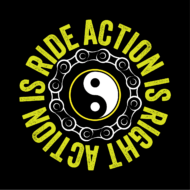I recently finished up David Foster Wallace‘s Consider the Lobster – a collection of essays and articles he authored that were originally featured in other publications and then collected here. I found it a very enjoyable read. I’d heard a lot of good things about Wallace and started to read Infinite Jest – but had to return it to the library before I finished it. Apparently it’s not uncommon to start and never finish it, but I still intend to as I very much enjoy Wallace’s style of writing.
Though all a bit dated at this point, my favorite essays in Lobster are probably (in no particular order:)
“Big Red Son” – Wallace’s account of a visit to the 1998 Adult Movie Awards – very entertaining.
“Authority and American Usage” – a review of Bryan A. Garner‘s A Dictionary of Modern American Usage. Something that would seem totally boring, but I found very interesting, which was surprising for a non-SNOOT like me. Reading this article though has shown me that perhaps there’s a SNOOT inside me somewhere and I should embrace my inner SNOOTiness.
“Up, Simba” – a fascinating account for Rolling Stone of time spent on John McCain’s 2000 presidential campaign trail. Taught me a few things about McCain and there were some weird parallels (to me anyway) to the campaign and election of Trump. Note: Apparently the version of this published in Rolling Stone was considerably shortened. I found this unedited version a great read, and I’m not sure what you could have cut out without detracting from the essay overall.
Interestingly enough, my library e-book copy didn’t include the article ‘Host’ which originally appeared in The Atlantic in 2005 and is a profile of a conservative radio talk show host in LA as well as discussing other facets of talk radio and how it effects “how Americans talk, think and vote”. I hope to maybe find this article online somewhere as the link from Wikipedia to The Atlantic is broken.
All told, I find I really like Wallace’s writing style, look forward to checking out his other works and find it unfortunate that he didn’t stick around longer to continue to gift us with such excellent work.
Edit: I eventually found a copy of ‘Host’ online at the Atlantic – they’d redone the article with new, interactive tools to feature Wallace’s footnotes and asides – features he was known for. This version can be found here: ‘Host’, by David Foster Wallace on The Atlantic

